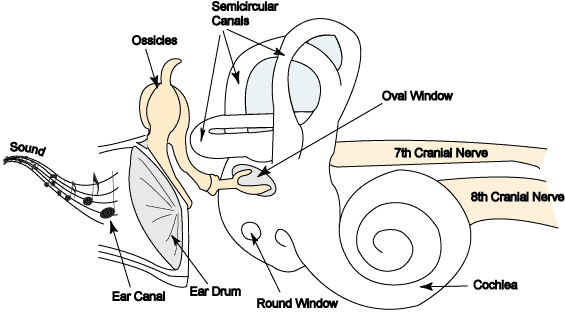Understanding Neurotology
Specialized care for inner ear and balance disorders
What is Neurotology?
Neurotology is a subspecialty within otolaryngology (ENT) that focuses on the diagnosis and treatment of disorders related to the inner ear and the central nervous system pathways that control hearing and balance.
Neurotologists are physicians who have completed specialized training in both otolaryngology and neurological sciences, allowing them to diagnose and treat disorders that affect hearing, balance, and facial nerve function.

Key Areas of Focus
Inner ear disorders affecting hearing and balance
Conditions that affect the delicate structures of the inner ear, including the cochlea (hearing) and vestibular system (balance).
Neurological pathways connecting the ear to the brain
The complex neural connections that transmit sound and balance information from the ear to the brain for processing.
Diagnosis and treatment of complex ear conditions
Specialized testing and advanced treatment options for conditions that affect hearing, balance, and related functions.
Common Neurotological Disorders
Hearing Loss
Including conductive, sensorineural, and mixed types, as well as sudden hearing loss and age-related hearing loss (presbycusis).
Learn moreVestibular Disorders
Including benign paroxysmal positional vertigo (BPPV), Meniere's disease, vestibular neuritis, and labyrinthitis.
Learn moreAcoustic Neuroma
Benign tumors of the vestibulocochlear nerve that can affect hearing and balance, sometimes requiring surgical intervention.
Learn moreTinnitus
Ringing, buzzing, or other sounds in the ears that can significantly impact quality of life and may be related to various underlying conditions.
Learn moreFacial Nerve Disorders
Including Bell's palsy, facial nerve paralysis due to trauma or tumors, and other conditions affecting facial movement.
Learn moreSkull Base Tumors
Tumors that can involve the temporal bone and related neurovascular structures, such as meningiomas and glomus tumors.
Learn moreWhy Choose a Neurotologist?
Neurotologists have specialized training beyond general otolaryngology (ENT), with additional focus on the complex relationship between the ear and the brain. This specialized training includes:
- 5-6 years of otolaryngology residency
- 1-2 additional years of fellowship training in neurotology
- Expertise in both medical and surgical management of ear and skull base disorders
- Advanced training in complex ear surgeries and procedures
When dealing with complex ear, hearing, or balance disorders, a neurotologist offers the highest level of specialized care, working in collaboration with other specialists such as audiologists, neurologists, and physical therapists to provide comprehensive treatment.
Medical Disclaimer
The information provided on this website is for educational purposes only and is not intended as medical advice. Always consult with a qualified healthcare provider for diagnosis and treatment of any medical condition.